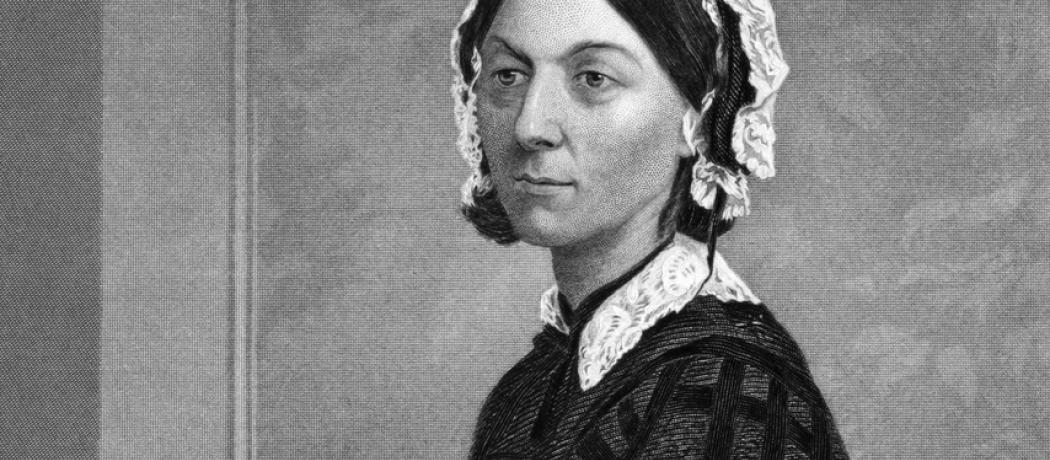Florence Nightingale was born in Florence, Italy, on 12 May 1820, the second child of affluent British parents. She was raised on the family estate in Derbyshire, where she was provided with a classical education—languages, history, mathematics. The Nightingales belonged to elite social circles but Florence was reportedly awkward in social situations. She was a strong-willed adolescent and while she tried to please her mother, they did not always get along. Florence looked after sick animals in the household, and visited poor people in the village close to the family estate. The family was upset when she approached her parents about her ambition to become a nurse. They wanted her to marry when she was 17 but she refused a proposal from a suitable gentleman.
Still insisting on becoming a nurse, in 1841 her father took her to Germany to visit Theodor Fliedner’s hospital and deaconess training centre. The women trained there were dedicated to the care of the sick or poor, engaged in social service duties, teaching, and missionary work. In 1844 Florence entered the hospital’s training program. Back in London in 1850 she took on a nursing position in a Middlesex hospital for ailing governesses. Within a year she was promoted to superintendent, and almost immediately she had to grapple with a cholera outbreak and the related unsanitary hospital conditions.
In 1853 the Crimean war broke out and thousands of miles away the British Empire was at war with the Russian Empire for the control of the Ottoman Empire. Within a year over 18 000 British soldiers were in understaffed military hospitals, lacking sufficient medical care, without female nurses, in unsanitary and inhumane conditions. In response to the outcry of the British public, Nightingale was called upon by the Secretary of War to organize a corps of nurses and sail immediately to Constantinople, to the British base hospital. On arrival she found that more soldiers were dying from infectious diseases like cholera or typhoid than from injuries related to battle.
Nightingale’s work in Crimea has become the topic of legends. Returning home a year-and-a-half later, she was met with a hero’s welcome and she was called the Angel of the Crimea, the Lady with the Lamp. The Queen granted her a prize of $250 000, which she used to fund St. Thomas Hospital, and its Nightingale Training School for Nurses. However, her health was damaged; she had contracted what was then called Crimean fever. By 1858 she was bedridden and she would be so for the rest of her life, but she conducted her work from her bed, advocating health care reform, meeting distinguished visitors, and publishing her writings.
On Friday, 12 August 1910, at the age of 90, Florence Nightingale died. She is still revered as the pioneer of modern nursing. To mark the 200th anniversary of her birth, the World Health Organization has designated 2020 as the Year of the Nurse.
—George Szasz, CM, MD
Suggested reading
Encyclopedia Britannica. Theodor Fliedner. Accessed 3 January 2020. https://theodora.com/encyclopedia/f/theodor_fliedner.html.
History. Florence Nightingale. Accessed 3 January 2020. www.history.com/topics/womens-history/florence-nightingale-1.
This post has not been peer reviewed by the BCMJ Editorial Board.


Thank you for this brief history of Florence Nightingale. We are celebrating her life from May 4-8 during our Nurses' Week activities and full day devoted to her on May 12 at our hospital in Cleveland, OH.